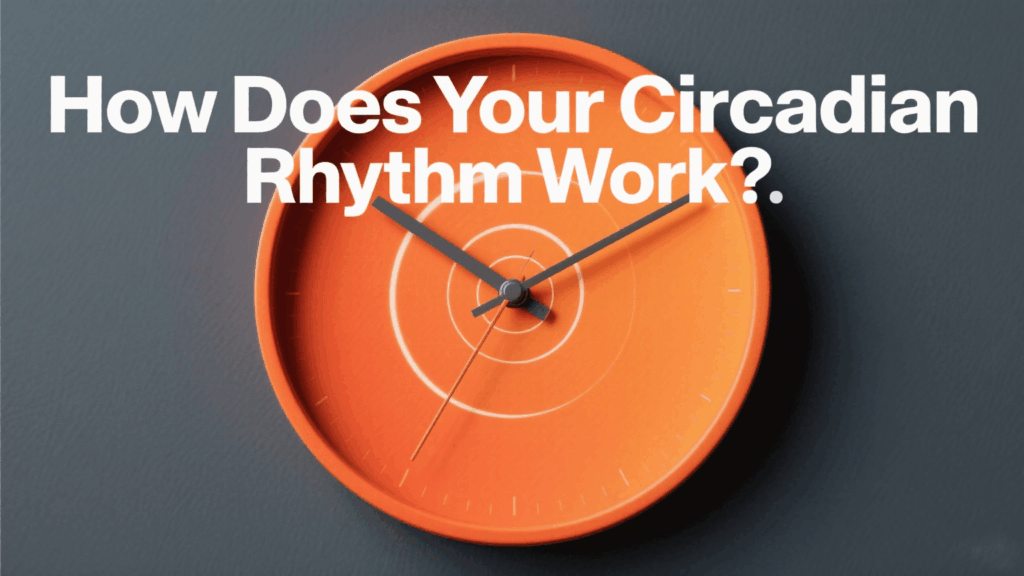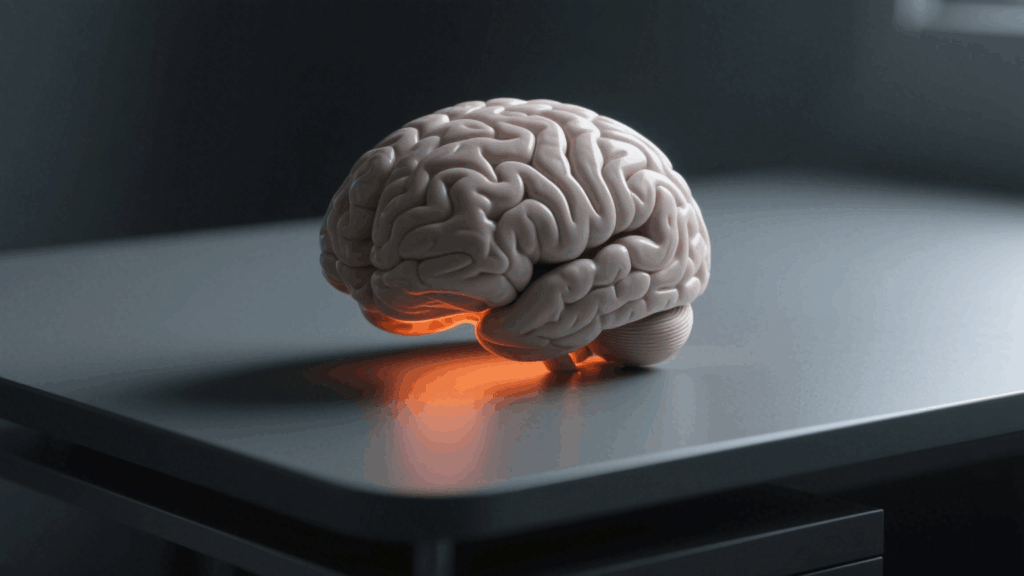
Have you ever become curious about the reason why you work very well at certain times and get tired at other times? The answer is simple – it’s your circadian rhythm which is a kind of internal clock in your body that influences everything from sleep patterns to the production of hormones in your body. Your circadian rhythm doesn’t only function as a biological clock, it’s a complex 24-hour cycle that drives your behavioral, physical, and mental changes throughout the day. It is the conductor of your body, playing the roles of various processes and their synchronization in line with the day-night light cycle; it’s just that you can’t see it happening.
The article below will crack the intriguing neuroscience of figuring out your body clock. You will learn:
The relationships between your body’s master clock and healthy sleep
The significant impact of the quantity and quality of light radiation on the synchronization of the human biorhythm
The scale of the internal clock bi-physiological regulation in the human body and its health consequences.
Guiding principles for the daily activity of your body’s internal timing system
– Body circadian rhythm is not only the sleep-wake cycle regulator, but it also takes part in the influence of body temperature, hormone production, and the middle of the digestive system functions
– The process of Light exposure – eye retina first being hit by sunlight signals the synchronization of your body with day-night cycles
– You definitely cover sleep disorders, cognitive impairment, etc. when out of synchrony. here, however, further evidence of the endocrine systems dysfunction potential
– Common factors affecting your body clock include shift work, jet lag when crossing time zones, and irregular sleep patterns
– Maintaining a regular sleep-wake rhythm is essential for the seamless working of your body’s internal master clock

The Science Behind Your Internal Clock
Your internal clock, also referred to as the body’s natural 24-hour clock, is a very interesting biological structure that part of the human organism orchestrates over the course of a typical day (midnight to midnight). This complex timer not only controls your sleep-wake cycle, but it is also part of the creation of your hormones.
The Master Clock in Your Brain
The suprachiasmatic nucleus (or SCN), which is a small part of the hypothalamus in the brain, is the most important component of the circadian system. This central clock controls the body’s biorhythms by not only integrating light cues but also by transmitting the impulse throughout the body.
Biological Processes and Timing
The internal clock participates in many functions in the body: releasing hormones, warming up and turning down the metabolism. And similar to a conductor in an orchestra, the master clock organizes all of these events to fit the best during a 24-hour course, thus ensuring that your body functions well during your daily activities.
Core Components of Your Body Clock
Sleep-Wake Patterns
The regular sleep-wake cycle of the body is one of the core parts of the internal biological clock that is inherent in the human body. This internal timekeeping system is what gives you the feeling of being awake when you are and being slow when you are not. The pattern of the process goes through a cycle of approximately 24 hrs, where the highest level of awareness comes at a time, whereas when darkness sets in, the level of sleepiness also increases.
Temperature and Hormone Regulation
The body’s internal physiology is such that it can orchestrate very precise temperature changes that are based on the time of day. The internal temperature of your body is prone to fall during sleep and to rise during the waking hours of the day. This biofeedback mechanism of temperature and hormone synchronization, mainly through melatonin, and cortisol, which spurs either the sleep or the stress response assist in keeping your biological clock ticking.
Daily Energy Cycles
Your energy levels during the day are interconnected with your body’s internal clock. It is most likely that a person’s level of alertness would sync well with the afternoon and the evening hours since the mid-morning period is usually the lowest. This circadian rhythm is nature’s way of showing one’s metabolism, cognitive abilities, and sleep-wake pattern being coordinated.
Age-Related Changes in Circadian Rhythm
Travel Across Time Zones
Jet lag, the famous disorder of sleep-wake cycle, which is experienced by millions of tourists and business people at the end of intercontinental flights, is created by the body being exposed to different time zones. The body continues to cope with the local time that it was in originally, thus the two different time zones contradict each other. This change of environment can have an adverse effect on the individual, causing sleepiness, insomnia and lack of concentration.
Work Schedule Impacts
Shift work and irregular schedules are factors that have a considerable effect on your circadian rhythms. If you are on a night shift or your schedule is ever-changing, your body will be forced to operate against its natural body clock. The disconnection between the natural and the man-made rhythms can cause sleep disturbances, reduced alertness, and potential health issues with time.
Common disruptions in the circadian rhythm are critical changes in sleep disorders. Circadian rhythm disorder is mainly a disorder that is related to jet lag. Here, moving from one time zone to another confuses the body, and then such transgressors may need up to one day to get physically in their new time zone completely. Other examples are shift work disorder that makes it difficult for a person to fall asleep during scheduled rest times because workers suffer from sleeping problems due to being on a schedule of moving their work hours – such as if they start working during the day and then during the rest of the week switch to night working.
People with delayed sleep phase disorder can have difficulties falling asleep at the required hours set by the norms, while individuals with advanced sleep phase disorder have these times so early that they even wake up extremely early. The former and the latter which falls under the umbrella term sleep phase disorders that shows a high percentage of contributing to their ill state who quality of life is worse than the others, are well known for these disorders.
Reduction in the body’s internal timekeeping system results in various medical issues associated with sleep such as depression, decreased mental performance, and gastrointestinal disorders. As scientific studies indicate, prolonged interference with regular sleep-wake patterns can be a cause of a variety of chronic diseases, such as diabetes, heart disease, cancer (related to the exposure of electric devices during the night, cancer etc.).
Circadian rhythm illness appears when one’s inner body clock has a bad timing and is no longer synchronized to the natural day-night rhythm. The said malfunctions are a serious challenge to the rules of sleeping and wakefulness of a person because the situation may mean that an individual will be in darkness and isolation for a considerable or overlong time.
To fix your circadian clock, adapt your lifestyle that is about to shift. Progressively changing daily circadian peaks and falls to the same time and duration will be beneficial. Also, do not ignore it when experts recommend that you use dimmer light. Besides, even weather conditions, particularly rain, and moonlight, are good sleep ushers too.
Conclusion
Creating a relaxing bedtime routine that tells your body it’s time to unwind is a good practice. Reading a book, taking a warm bath, and doing gentle stretching exercises are examples of this. Apart from that, exercising in the daylight can regulate your body’s internal clock, but vigorous workouts close to bedtime should be avoided.
One of the important health practices is to get to know your circadian rhythm and to comply with it in order to improve your overall health, your sleep habits as well as your daily performance. You may be the one to initiate the process of optimizing your sleep systems, and it’s not only about your sleep-wake cycle that needs to be set right because from your digestive and endocrine systems to your life, everything can function smoothly and effectively.
Just remember, the body’s internal watch is yours, and the influence it knows is the one related to changes in the environment such as light exposure and work patterns, for example. When you compare situations like jet lag, problems in shift working, or merely setting a regular sleep plan for health purposes, making your conscious decisions, on a daily basis, will by all means, be of significance in adjusting to your circadian cycle.
Utilize the practical strategies we have been talking about, and you will not only wake up feeling better but also fall asleep faster. Follow your body’s cues for when to wake up and go to bed, and avoid overexposure to light. Seek medical assistance if you continue to struggle with your sleep issues despite trying different self-help routines. Your body’s clue to the best health is the same as your best friend, on your side. Let’s make it your health-making partner.